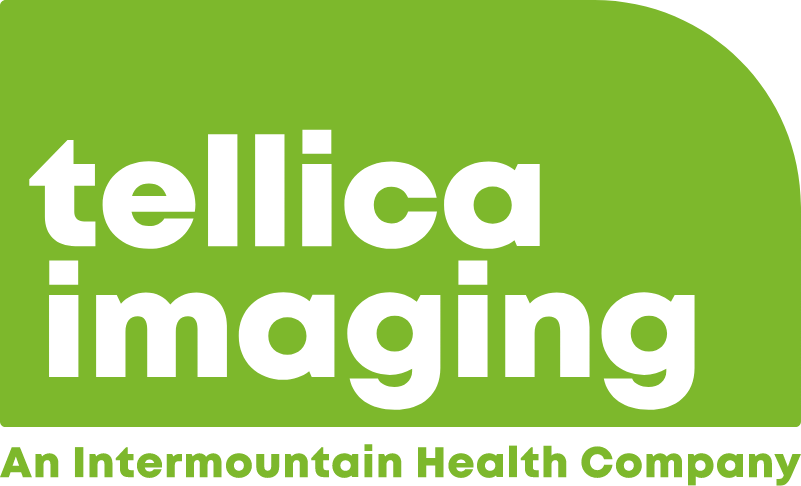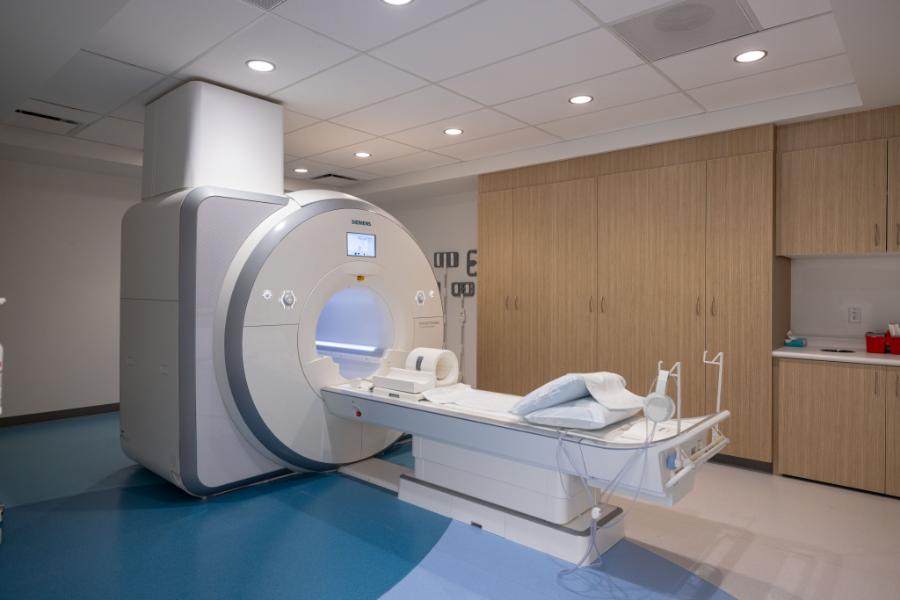On the day of your MRI scan, you will be asked to wear comfortable clothing free of metal objects so it does not interfere with the magnetic imaging. You will typically be asked to change into a medical gown.
In some cases, a contrast material (usually Gadolinium-based) may be injected through an intravenous (IV) line into a vein in a hand or arm. This helps make details clearer in the imaging results.
Once prepped, you will lie down on a comfortable table that slides into the MRI scanner.
The scanner is a large, tube-shaped machine. During the scan, you may hear clicking or buzzing noises. Earplugs and music are available to help you feel calm and comfortable throughout the procedure, along with a warm blanket since the room is intentionally kept at a cool temperature. Our technician monitors you from outside the scanner and can answer any questions you may have during the scan.
The MRI scan typically takes 20 to 45 minutes, depending on the area being imaged and the number of images required. We are committed to providing a positive experience for all our patients.
If you have any concerns about claustrophobia or anxiety, please inform us in advance, so we can recommend ways to help you feel more comfortable during the scan.


